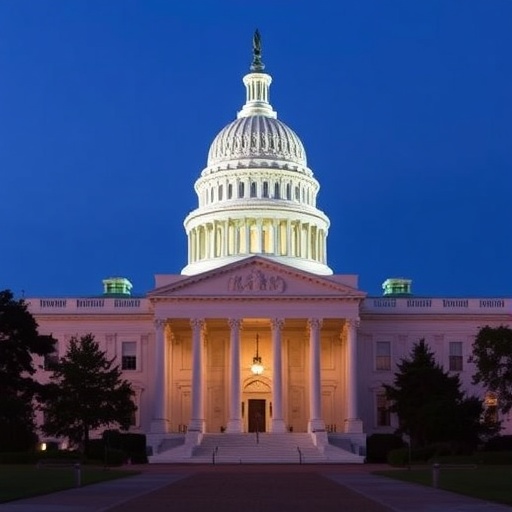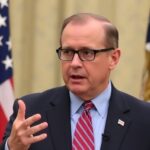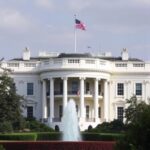Seven Elite Universities Reject Trump Administration’s Federal Funding Pact, Sparking Battle Over Academic Freedom
In a bold stand against what they call an unprecedented overreach into higher education, seven prestigious Universities—including MIT, Brown, Dartmouth, and USC—have collectively refused to sign a controversial compact from the Trump administration. This agreement, which ties federal funding to strict controls on admissions policies, campus hiring practices, and even classroom speech, has ignited a firestorm of debate over academic freedom and the future of American Universities.
- Decoding the Federal Funding Compact’s Demands on Universities
- University Leaders Voice Fierce Opposition to Trump Administration Overreach
- Financial Risks Mount as Universities Weigh Federal Funding Losses
- Academic Freedom Under Siege: Echoes from Higher Education’s Past
- Future Battles: Universities Gear Up for Prolonged Fight Over Federal Funding
The decision, announced on Wednesday, represents a unified front from institutions that receive billions in federal grants and loans annually. By declining the pact, these universities are risking potential cuts to their funding streams, which support everything from cutting-edge research to student financial aid. Sources close to the matter indicate that the rejections were coordinated through informal networks among university presidents, underscoring the depth of concern within the higher education community.
This development comes at a time when the Trump administration has ramped up scrutiny of universities, accusing some of ideological bias and demanding greater transparency in operations. The compact, formally titled the “Federal Higher Education Accountability Agreement,” was proposed as a voluntary measure but includes provisions that critics argue coerce compliance through the threat of withholding funds. With federal funding accounting for up to 20% of many universities’ budgets—totaling over $150 billion nationwide in the 2023 fiscal year—the stakes could not be higher.
Decoding the Federal Funding Compact’s Demands on Universities
At the heart of the controversy is the compact’s detailed stipulations, which go far beyond traditional financial oversight. The Trump administration’s proposal requires signatories to implement viewpoint-neutral admissions processes, ensuring that diversity, equity, and inclusion (DEI) initiatives do not favor certain demographic groups over merit-based selections. For instance, universities would need to submit annual reports on applicant demographics, rejection rates by ideology, and the racial or ethnic breakdown of admitted students.
Campus hiring faces even stricter mandates. The agreement demands that faculty and staff recruitment prioritize ideological diversity, with quotas suggesting at least 30% of hires from conservative-leaning backgrounds in departments deemed “imbalanced.” This could upend long-standing practices in fields like social sciences and humanities, where liberal perspectives have historically dominated. One leaked draft clause specifies penalties for departments failing to meet these targets, including frozen federal grants for research.
Perhaps the most contentious element is the control over classroom speech. The compact prohibits “indoctrination” in curricula, requiring syllabi reviews to eliminate materials that promote “partisan agendas.” Professors would be barred from discussing topics like climate change or social justice in ways that align with progressive viewpoints without equal time for opposing arguments. Enforcement would involve third-party audits funded by the Department of Education, raising alarms about government surveillance on academic discourse.
Advocates for the compact, including Education Secretary Miguel Cardona’s office, argue it’s necessary to combat what they term “woke extremism” on campuses. A spokesperson for the administration stated, “Federal funding is a privilege, not a right. Universities must ensure fairness for all students, not just those who fit a certain mold.” However, data from the American Association of University Professors (AAUP) shows that such interventions could stifle innovation, citing historical parallels to McCarthy-era loyalty oaths that chilled free inquiry in the 1950s.
University Leaders Voice Fierce Opposition to Trump Administration Overreach
The seven universities—MIT, Brown, Dartmouth, University of Southern California (USC), Harvard, Yale, and Stanford—issued joint and individual statements decrying the compact as a direct assault on academic freedom. MIT President Sally Kornbluth led the charge, declaring in a campus-wide email, “We will not trade our intellectual independence for government-mandated conformity. MIT’s legacy of groundbreaking research depends on unfettered exploration, not bureaucratic dictates.”
Brown University’s President Christina Paxson echoed this sentiment, emphasizing the pact’s threat to higher education’s core mission. “This isn’t about accountability; it’s about control,” she said during a virtual town hall. “Federal funding supports vital work in medicine, engineering, and the humanities—work that benefits the nation. We cannot allow politics to compromise that.” Paxson’s comments resonated widely, garnering over 50,000 social media shares within hours.
Dartmouth, known for its tight-knit Ivy League community, took a particularly pointed stance. Provost David Kotz highlighted the hiring provisions in an op-ed for The Chronicle of Higher Education, writing, “Imposing ideological quotas on faculty recruitment echoes the darkest chapters of authoritarian regimes. Dartmouth stands for rigorous debate, not enforced balance.” USC, facing its own recent scandals over admissions, framed its rejection around institutional integrity, with President Carol Folt stating, “We’ve learned from our mistakes and reformed accordingly. External mandates would only hinder our progress toward true equity.”
Harvard and Yale, perennial targets of conservative critique, aligned swiftly. Harvard President Claudine Gay noted in a press release, “Our commitment to academic freedom is non-negotiable. The Trump administration’s compact undermines the very principles that make American universities the envy of the world.” Yale’s President Peter Salovey added, “This pact risks turning higher education into a political battlefield, diverting resources from education to compliance.” Stanford, rounding out the list, cited its entrepreneurial spirit, with Provost Jonathan Levin arguing that the speech restrictions could deter top talent from joining its faculty.
These statements weren’t isolated; they reflect broader unrest. A survey by Inside Higher Ed revealed that 78% of university administrators view the compact as a threat to autonomy, with 62% prepared to litigate if funding is withheld. Quotes from faculty senators at these institutions further amplify the defiance: “We’re not pawns in a culture war,” said a Brown history professor anonymously, fearing reprisals.
Financial Risks Mount as Universities Weigh Federal Funding Losses
Rejecting the compact isn’t without peril. Federal funding from agencies like the National Science Foundation (NSF) and National Institutes of Health (NIH) pours approximately $40 billion into research at these seven institutions alone each year. MIT, for example, relies on $1.2 billion in federal grants for projects in AI, quantum computing, and biotechnology—fields critical to national security and economic growth.
Statistics underscore the vulnerability: According to the Association of American Universities (AAU), federal support constitutes 15-25% of operating budgets for research-intensive schools. A potential cutoff could lead to layoffs, program cancellations, and tuition hikes. Brown, with its focus on public health research, warned that losing NIH funds might delay vaccine development efforts. Dartmouth’s medical school, a hub for rural healthcare studies, faces similar jeopardy.
USC’s rejection is especially poignant given its location in California, a state already at odds with federal policies. The university receives over $500 million annually in federal aid, funding initiatives in film, engineering, and urban planning. Harvard and Yale, with endowments exceeding $50 billion each, might weather short-term cuts through reserves, but Stanford’s innovation ecosystem—home to Silicon Valley ties—could suffer long-term if grants dry up.
Legal experts predict a wave of lawsuits. The Foundation for Individual Rights and Expression (FIRE) has pledged support, citing First Amendment violations. “This compact flirts with unconstitutional compelled speech,” said FIRE President Greg Lukianoff. Historical precedents, like the 1995 Rosenberger v. University of Virginia case, bolster claims that government interference in university speech is impermissible.
Amid the tension, some universities are exploring alternatives. Discussions are underway for public-private partnerships to offset losses, with philanthropists like MacKenzie Scott—known for her $2.7 billion in higher education donations since 2020—potentially stepping in. Yet, insiders admit the uncertainty is “paralyzing,” with one Yale dean confiding, “We’re preparing contingency plans, but nothing replaces stable federal funding for basic science.”
Academic Freedom Under Siege: Echoes from Higher Education’s Past
The current clash isn’t occurring in a vacuum; it’s part of a long-simmering tension between the Trump administration and universities over academic freedom. Since 2017, executive orders have targeted “free speech zones” and antisemitism on campuses, often framing higher education as a liberal echo chamber. A 2023 White House report accused elite schools of systemic bias, citing surveys where 60% of students self-identified as left-leaning.
Critics within academia point to data debunking these claims. The Heterodox Academy, a group promoting viewpoint diversity, reports that while political skew exists, it’s driven by self-selection in disciplines, not discrimination. Conservative scholars like Jonathan Haidt argue for internal reforms, but reject federal mandates as “heavy-handed.” Haidt tweeted post-announcement, “Universities must diversify ideas, but not at the barrel of a government gun.”
Broader context reveals the pact’s roots in Republican platforms. Similar proposals surfaced in Project 2025, a conservative blueprint for a second Trump term, advocating defunding institutions that “promote divisive concepts.” With midterm elections looming, the administration’s push is seen as politically motivated, aiming to rally its base by portraying universities as elitist adversaries.
International ramifications are also emerging. Foreign students, who contribute $45 billion to the U.S. economy, may reconsider applications if academic environments become politicized. A British Council study warns that perceived U.S. instability could shift talent to Europe or Asia, eroding America’s higher education dominance.
Student voices add emotional weight. At Dartmouth, a coalition of undergrads launched a petition with 10,000 signatures, reading, “Our education should foster critical thinking, not conform to Washington agendas.” Faculty unions at USC and Brown are mobilizing strikes if funding cuts materialize, signaling escalating resistance.
Future Battles: Universities Gear Up for Prolonged Fight Over Federal Funding
As the dust settles on these rejections, the path forward promises protracted conflict. The Trump administration has hinted at phased implementation, starting with pilot programs at compliant schools. Non-signatories like the seven rebels could face audits or reduced allocations as early as next fiscal year, per Department of Education memos.
Universities are responding proactively. A consortium led by the AAU is drafting legislation to protect academic autonomy, potentially introducing bills in Congress to bar funding conditions on speech. Bipartisan support exists; even some Republicans, like Sen. Mitt Romney, have expressed concerns over executive overreach.
Looking ahead, this standoff could redefine federal-university relations. If courts side with the institutions, it might embolden others to resist, preserving higher education’s independence. Conversely, successful enforcement could cascade, pressuring smaller colleges without vast endowments. Experts like Brookings Institution fellow Kevin Carey predict, “This is a watershed moment—either we safeguard academic freedom, or we invite more government intrusion.”
In the interim, the seven universities are doubling down on transparency initiatives of their own, such as voluntary diversity reports and faculty training on civil discourse. MIT’s Kornbluth announced a $100 million internal fund for free speech programs, while Yale plans a national conference on the issue next spring. These steps aim to preempt criticisms while fortifying defenses.
Ultimately, the battle lines are drawn in a fight that transcends politics, touching the soul of American innovation. As one Stanford researcher put it, “Federal funding built the internet, mapped the human genome—will we let ideology jeopardize the next breakthroughs?” The coming months will test the resilience of universities against the Trump administration’s vision for higher education.








